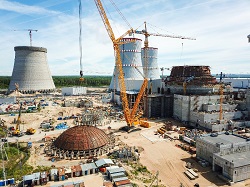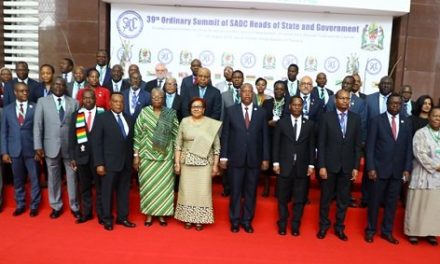
Robot performing diagnostics of nuclear cooling ponds tested in Russia

A unique robot assigned with the task of performing diagnostics and repair of the wall lining and bottom of the cooling ponds of VVER-1200 reactor-enabled units was recently tested at the Leningrad Nuclear Power Plant in Russia.
The robotics device was constructed specifically for servicing new types of nuclear power plants. Additional operations like draining water from the pool or unloading fuel in order to operate the power plant are no longer required, unlike the current way of nuclear power plant operation.
The distinguishing feature of the robot is its versatility: it looks for potential leaks, determines their coordinates, cleans up the defective surface and performs plating of the surface by welding. Its repair modules are equipped with swivel brackets. This allows for work in any hard-to-reach areas of the pool, for example, in the corners.
“A robot that can inspect and repair the lining of the fuel pool, if necessary, will quickly eliminate leaks to maintain the design water level in it,” said Aleksandr Belyaev, Leningrad Nuclear Power Plant chief engineer, noted.
The device was tested at a special stand, where experts simulated the entire chain of operations it needs to perform. The robot is ready for operation in the storage pools of Leningrad nuclear power plants Units 5 and 6.
The spent fuel pool is a reinforced concrete structure with a metal cladding filled with water with boric acid. The storage cassettes with spent nuclear fuel are stored for several years until heat dissipates and radioactivity levels decrease.
 The Leningrad NPP-2 nuclear power plant located adjacent to the Leningrad I nuclear power plant in the federal subject of Leningrad Oblast in Russia.
The Leningrad NPP-2 nuclear power plant located adjacent to the Leningrad I nuclear power plant in the federal subject of Leningrad Oblast in Russia.












































